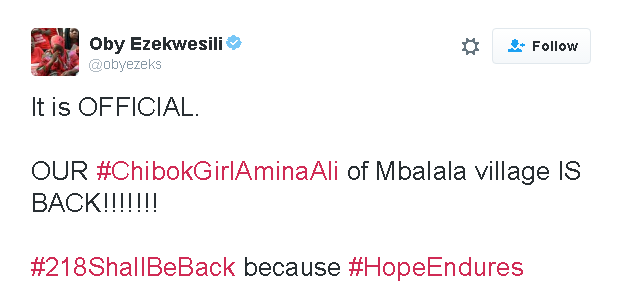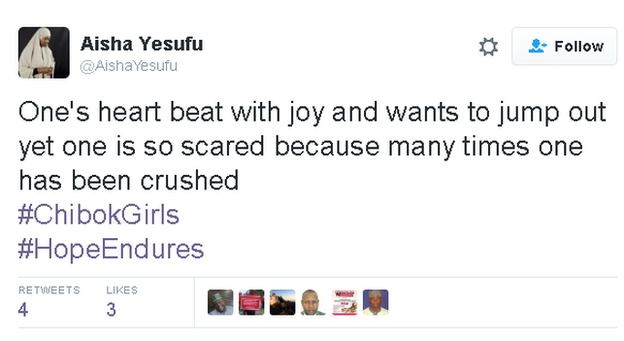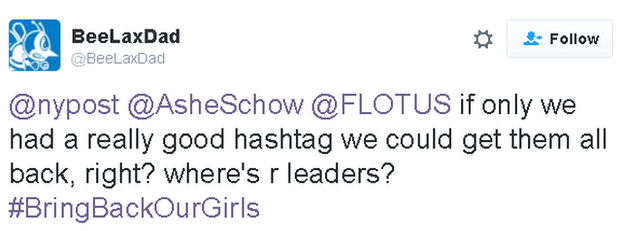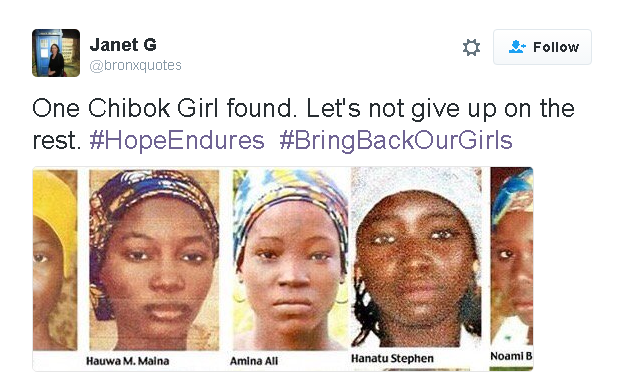Chibok rescue: From #BringBackOurGirls to #HopeEndures
- Published
A huge Twitter campaign for 200 schoolgirls kidnapped in Nigeria gained momentum after one of them was found two years after her capture.
#Bringbackourgirls became one of the biggest social media campaigns ever.
It got the support of celebrities from the US First Lady, Michelle Obama, to Pakistani activist Malala Yousafzai and US chat show host Ellen DeGeneres.
Now that the girl, identified as Amina Ali Nkeki, has been found, people have taken to Twitter again.
Many people welcomed the news, and hoped that the other girls abducted by Boko Haram militants would be found soon.

Oby Ozekwesili was one of the organisers of the #BringBackOurGirls campaign



On the Bring Back Our Girls page on Facebook, people started to share their delight.

A hashtag with the rescued woman's name, #ChibokgirlAminaAli, trended in Lagos, Nigeria's largest city.

Some people called for action, or were angry at a perceived lack of action so far.
President Muhammadu Buhari has faced fierce criticism from the Bring Back Our Girls campaigners for a lack of progress in finding the girls.
When he came to power last May he said Boko Haram could not be defeated without rescuing them.


The Sambisa forest is not accessible by road but Nigerian media report that the army has launched operations against Boko Haram there in the last few days
Even as they tweeted, some were sceptical about how useful the campaign had been.
One of the main criticisms of the #BringBackOurGirls movement was that it was an example of 'clicktivism', online work for a cause that does not actually change anything but allows people to feel they have done something they believe in.

One newspaper columnist openly mocked clicktivism

But most of the comments online focused on the hope that Amina Ali's reappearance brings for the return of the other abducted women and girls.
